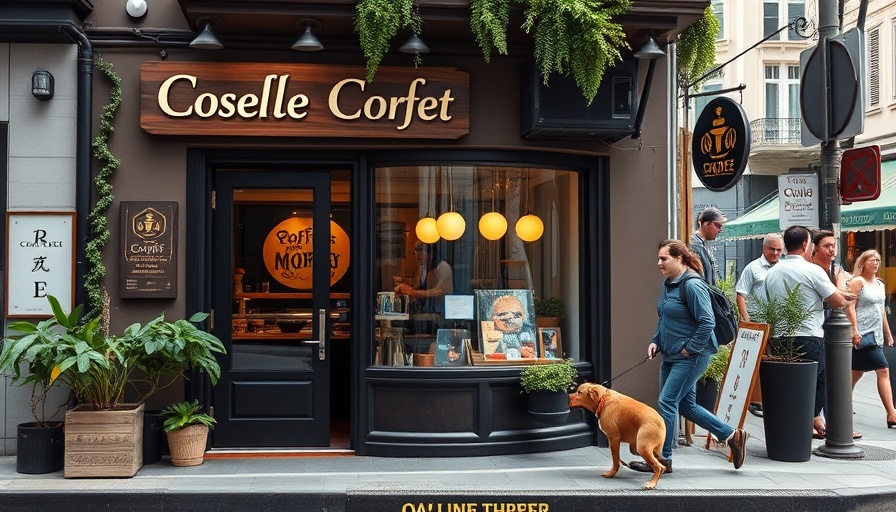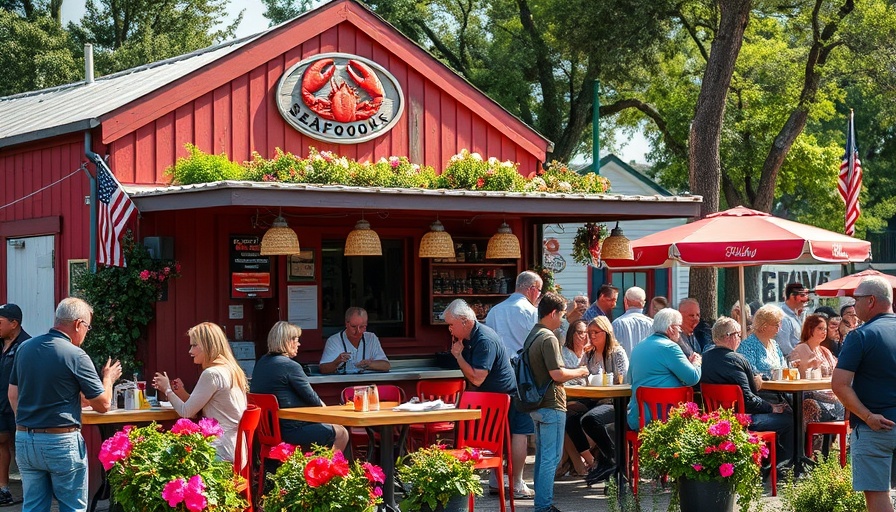
Unlocking the Cooperative Model in Boston's Coffee Scene
In the vibrant neighborhoods of Greater Boston, a brewing revolution is underway at worker-owned coffee shops. These establishments—such as Cafe Reynard, New Leaf Espresso, and Circus Cooperative Cafe—are more than just caffeine stops; they are reimagining what it means to run a business by putting equality and community at the forefront.
Equal Pay: A Brew for Fairness
Worker-owned cafes are built on the principle of equal pay. Here, baristas and servers earn the same wage, fostering a culture where financial benefits do not funnel to a single boss but are shared among all. At Cafe Reynard, for instance, each employee earns $20 an hour, creating a fair living wage that empowers staff members and ensures their satisfaction reflected in customer service. This cooperative model not only enhances worker morale but also drives customer loyalty—people appreciate knowing they're supporting a fair-trade business.
A Community-First Approach
More than just monetary equality, the cafes thrive on community engagement. They operate on a model where decision-making is democratic, allowing each worker to have a voice. Circus Cooperative Cafe, for example, transitioned from a traditional business to a cooperative to ensure that profits directly benefit those who contribute the most—the workers. This way of structuring allows for a sense of ownership, where workers feel invested in the success of their business and community.
Navigating Challenges Together
Despite the bustling energy surrounding these cafes, the cooperative model isn't free from challenges. As some establishments like New Leaf Espresso are still navigating the potential transition to a fully worker-owned model, the combination of goal-setting, team commitment, and shared values become vital. Each step forward is a collaborative effort that highlights a new way of thinking about labor in the contemporary business landscape.
The Future of Worker-Owned Cafes
As these coffee establishments garner more attention, they offer a glimpse into a future where egalitarian structures are seen as viable alternatives to traditional business practices. With growing interest from both customers and aspiring entrepreneurs, Greater Boston's worker-owned cafes could pave the way for other sectors to adopt similar inclusive strategies, fostering a movement that prioritizes community well-being over profit margins.
Exploring the values and operational structure of these hardworking establishments demonstrates the tangible benefits of embedding fairness into business practices. Those interested in contributing to or learning more about supporting such models are welcome to stop by these addresses and enjoy a cup of coffee that also brews social change.
 Add Row
Add Row  Add
Add 




Write A Comment